Consortium
Who we are?

Institut National Polytechnique de Toulouse (INPT)
Research
Institut National Polytechnique de Toulouse (INPT) is a French federation of 6 Higher Schools (“Grandes Ecoles”) among which ENSAT, ENSEEIHT, ENSIACET are the historical Engineering Schools constituting INPT since 1971, and three Engineering Schools EI Purpan, ENIT, ENM. They provide education/continuous education and conduct research in the fields of Agronomy, Animal Health, Automatics, Biology, Chemical Engineering, Chemical Sciences, Climatology, Computer Sciences, Electronics, Electrical Engineering, Electronics, Environment, Fluid and Solid Mechanics, Food Safety, Industrial Engineering, Materials, Meteorology, Process Engineering, Sustainable development, Telecommunications, and Veterinary Sciences. About 7 000 students active in its 12 sites. INPT awards about 150 PhD per year. In this project, INPT will be represented by INPT-IRIT (“Institut de Recherche en Informatique de Toulouse” - Toulouse Institute of Computer Science Research). INPT-IRIT gathers more than 500 members. It is the largest computer science laboratory in France. INPT-IRIT researchers belong to one of the following institutions: CNRS (Centre National de la Recherche Scientifique), INPT (Institut National Polytechnique de Toulouse), UPS (Université Toulouse III-Paul Sabatier), UT1 (Université de Toulouse 1 Capitole) and UT2J (Université de Toulouse Jean Jaurès). This entails that all these institutions’ researchers can take part in this project, in addition to the ones from INPT. INPT-IRIT’s 24 research groups of the laboratory work in seven scientific themes covering most of computer science. Key personnel and groups have a long-standing experience in data sciences and data analytics, security, privacy, engineering, networks, and policy-making, with strong collaboration links with other academic and industrial partners. More precisely, in CEASEFIRE project, REVA team at ENSEEIHT and Minds team at UPS, are involved. These two teams have competences in image processing, computer vision and artificial intelligence, in particular, in deep learning. Consequently, the contributions will focus on object recognition and classification dedicated to firearms identification.

Ianus consulting LTD
SME
Ianus LTD is an SME based in Cyprus, founded in 2019. The company conducts research in a number of areas with more active participation in the security domain. Ianus develops innovative technology solutions and concepts based on research outcomes and actively participates in the preparation of research proposals and the implementation and management of all aspects of European-funded research projects.
Ianus is leading the activities that address organizational, legal, and operational aspects in fully functional national firearms focal points and is responsible for the validation and demonstration of the project services, by leading the definition of the scenarios for the pilot studies, the implementation of the training curricula, the planning of the pilot execution, and the demonstration and validation in real-world environments.
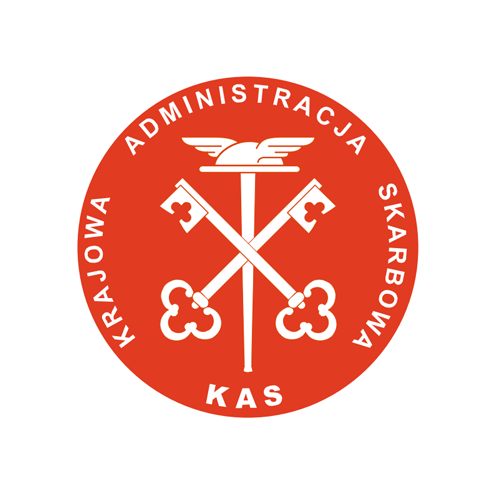
Polish customs
USER
The Tax Administration Chamber in Gdask is part of the National Tax Administration in Poland (KAS). The National Revenue Administration (KAS) takes care of the realization of revenues from taxes, customs duties, fees and non-tax budget receivables. It protects the interests of the State Treasury and the customs territory of the European Union. Provides service and support for taxpayers in the proper performance of tax and customs obligations.

Trilateral research
SME
Trilateral Research is a UK and IE-based enterprise, founded in 2004. We provide ethical AI software solutions for tackling complex social problems in the public sector. Our rigorous research is the foundation of our work. Our team members are at the forefront of all things ‘data’ in our complex world: from collection, processing, analysis and modelling to the consideration of emerging policy and regulations in AI innovation. This enables us to:
• Advance our software products by providing ethical AI that is driven by responsible innovation and deep knowledge of relevant social problems
• Ensure our consulting services are at the cutting edge of emerging regulatory and ethical requirements and leverage the latest domain-specific insights
• Continue to innovate, by driving the development of new technologies and methods for ethical AI
Our solutions make it possible for public-sector professionals to make the best use of their data. We focus our efforts on areas where the application of our software and services can make a difference in supporting decision making to enhance societal wellbeing.
Given Trilateral Research’s expertise in ethical AI software solutions, Trilateral Research will contribute to all legal, ethical, personal data, fundamental rights and privacy aspects of CEASEFIRE. Trilateral Research will also lead project activities relating to the harmonisation of framework procedures in trans-border, cross-jurisdictional investigations, cooperation, lawful evidence collection, and forensic analysis. In achieving Trilateral Research’s mission of enhancing societal wellbeing, Trilateral Research will also lead a comprehensive societal impact assessment study of the project’s activities, developed technologies and produced outcomes.
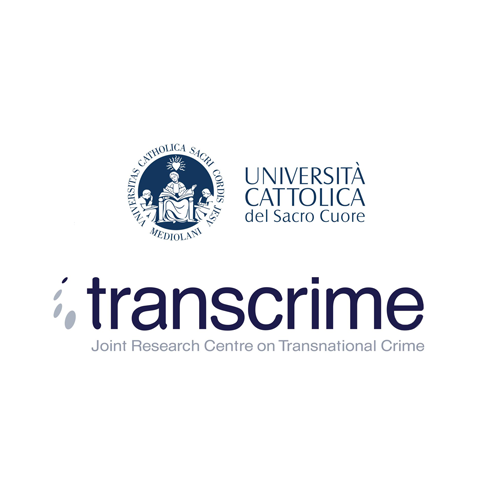
Università Cattolica del Sacro Cuore (UCSC)
Research
Founded in 1921, Università Cattolica del Sacro Cuore (UCSC) is the largest non-state university in Europe with 12 Faculties and about 41.000 students. Research activity draws on 1328 tenured researchers, 39 departments, 1 institute, 93 research centres, 4 university centres, 6 between observatories and laboratories, 8 Graduate Schools and 11 spin-offs and is aimed towards the study and understanding of crucial issues of life and society. Transcrime is the Joint Research Centre on Transnational Crime of the Università Cattolica del Sacro Cuore, the Alma Mater Studiorum Università di Bologna and the Università degli Studi di Perugia. The centre, founded in 1994 and directed by Professor Ernesto Ugo Savona, is based in Milan and has a staff of about 30 people. Its mission it to develop innovative research to reduce and prevent crime by employing an integrated approach (criminology, law, economics, statistics, sociology, forensic accounting, computational sciences). Its core areas are: analysis of transnational criminal phenomena (organized crime, economic crime, money laundering, illegal markets, urban crime, firearms trafficking); evaluation of crime prevention policies; analysis and identification of criminogenic opportunities in legislation (crime proofing analysis); development of risk assessment models and crime prevention strategies for public and private actors. Transcrime has participated in more than 150 research projects funded at both national and international level. It has a global partnership network with international organizations (e.g. United Nations, European Commission) national and local governments, central banks, law enforcement agencies, financial intelligence units, asset recovery offices, private companies.
Within Ceasefire Project, UCSC-Transcrime is leader of WP2 on Criminological analysis, user requirements and policy recommendations. It is leading the analysis of the modi operandi, risk profile creation and connections with other forms of organized crime. It will also develop a near real-time European-scale firearms-related incidents tracking tool, and it will summarize all significant outcomes reached during the whole duration of the project by providing best practices on firearms trafficking and lessons learned.

Certh
Research
The Centre for Research and Technology-Hellas (CERTH) is the only research centre in Northern Greece and one of the largest in the country being founded in 2000. It is a legal entity governed by private law with non-profit status, supervised by the General Secretariat for Research and Technology (GSRT) of the Greek Ministry of Education and Religious Affairs. CERTH has important scientific and technological achievements in many areas including: Energy, Environment, Industry, Mechatronics, Information & Communication, Transportation & Sustainable Mobility, Health, Agro-biotechnology, Smart farming, Safety & Security, as well as several cross-disciplinary scientific areas.
The Information Technologies Institute (ITI) was founded in 1998 as a non-profit organisation under the auspices of the General Secretariat for Research and Technology of the Greek Ministry of Development, with its head office located in Thessaloniki, Greece. Since 10/03/2000 it is a founding member of the Centre for Research and Technology Hellas (CERTH) also supervised by the General Secretariat for Research and Technology (GSRT).
CERTH/ITI is one of the leading Institutions of Greece in the fields of Informatics, Telematics and Telecommunications, with long experience in numerous European and national R&D projects. It is active in a large number of research domains such as Energy Efficiency in Buildings, Security and Surveillance, Image and Signal Processing, Computer & Cognitive Vision, Human Computer Interaction, Virtual and Augmented Reality, Multimedia, Database and Information Systems and Social Media Analysis.
CERTH/ITI has participated in more than 175 research projects funded by the European Commission (FP5-FP6-FP7 & H2020) and more than 100 research projects funded by Greek National Research Programmes and Consulting Subcontracts with the Private Sector (Industry). The last three years, the Information Technologies Institute has attracted an income of more than 25.5 M€ from National and European competitive R&D projects. For the last 10 years, the publication record of ITI includes more than 270 scientific publications in international journals, more than 600 publications in conferences and 100 books and book chapters. These works have been cited in more than 6.500 times.
Within CeaseFire, CERTH/ITI besides the role of the project coordinator, is also the leader of WP5, dealing with online trafficking activities analysis, utilizing Natural Language Processing (NLP) technologies, as well as analysis of blockchain and cryptocurrencies information.

Ministry of interior of North Macedonia
USER
The Ministry of Interior performs works and duties related to:
• Exercising the system of national and public security;
• Reporting of residence and temporary residence;
• Citizenship and passports for border crossing;
• Movement and stay in border area;
• Control when crossing national border, as well as certain works regarding determination and resolution of border incidents and other violations of border;
• Stay and movement of foreigners;
• Production, trade, storage and protection of flammable liquids, gases, explosives and other hazardous materials and their transport;
• Providing assistance in natural disasters and epidemics;
• Procurement, owning, carrying and control of marking of weapons and ammunition;
• Performing surveillance under their authority; and
• Performing other duties as stipulated by Law.

Moldovan general police inspectorate
USER
The General Police Inspectorate (GPI) is the administrative authority subordinated to the Ministry of Internal Affairs, which ensures, in accordance with the law, the implementation of state policies in the field of maintaining, ensuring and restoring public order and security, protecting the rights and legitimate interests of the individuals and community, investigation and discovery of crimes and contraventions, administration of justice, provides assistance to the population and local public, administration authorities.
GPI represents the central unit of administration and control of the Police, with the status of legal person under public law, having competence throughout the Republic of Moldova.
The GPI has the mission of coordinating and organizing activities aimed for the implementation of measures destinated to maintain public order and security, in order to increase the safety of citizens, streamline the process of preventing and combating crime, identifying and countering attacks on life, liberty, health and the integrity of persons, to private and public property, and to other legitimate interests of the community.
GPI ensures the accomplishment of the functions established by his Regulation in the following fields of activity:
1) maintaining, ensuring and restoring public order and security, protecting the rights and legitimate interests of the person and the community;
2) prevention of crimes and contraventions;
3) investigation of crimes and contraventions, as well as criminal prosecution;
4) ensuring the administration of justice;
5) assistance of the population and local public administration authorities;
6) organizing the activity of the Police.
Partnership:
In order to ensure the fulfillment of the missions established for GPI, in cooperation with international partners and institutions as EUROPOL, INTERPOL and with a big number of law enforcement authorities from other states such as Romania, Poland, Greece, Belgium, Germany, etc.
At the national level, GPI cooperate with structures such as The Security and Intelligence Service, General Inspectorate of Border Police, General Inspectorate for Emergency Situations, State Protection and Guard Service of Moldova, General Prosecutor's Office of the Republic of Moldova, the General Inspectorate of Carabinieri, National Institute of Justice, Central Probation Office, State Ecological Inspectorate, National Environmental Center, Main State Tax Inspectorate of Moldova, the Department of Penitentiary Institutions of the Ministry of Justice, etc.
There are a number of collaboration agreements signed between GPI, civil society and other similar institutions.
(https://politia.md/ro/advanced-page-type/parteneriate-cu-societatea-civila)
Also, GPI work in close cooperation with numerous universities and research institutes, NGOs from the Republic of Moldova and from other states.
GPI' s role in the project- final beneficiary.
GPI is a Police authority, represented with National Investigative Inspectorate of GPI, National Inspectorate of Public Security of GPI - The Forensic and Judicial Expertise Centre of GPI, Project management department of GPI and Information analysis department of GPI.
In order to tackle the issue of cross- border illicit trafficking in firearms, GPI foresees the coordinated action and collaboration of its listed departments/units. The results to be accomplished by the project are foreseen to significantly strengthen the operational capacity and capability of GPI to address challenges in the field of firearms trafficking. Use-case involvement: GPI will participate in use case #3 ‘Firearms purchase οn dark Web marketplaces’ and use case #4 ‘Mail order and courier service firearms trafficking detection using scanning technologies’

Police directorate of Serbia
USER
The Ministry of Internal Affairs performs state administration tasks related to: protection of life, personal and property security of citizens; prevention and detection of criminal acts and finding and catching perpetrators of criminal acts and bringing them to the competent authorities; maintenance of public order and peace; providing assistance in case of emergency; shelters; provision of assemblies and other gatherings of citizens; provision of certain persons and facilities, including foreign diplomatic and consular missions on the territory of the Republic of Serbia; safety, regulation and control of traffic on roads; proposing acts related to the exercise of founding rights over the public agency responsible for traffic safety; security of the state border and control of border crossing and movement and stay in the border zone; stay of foreigners; traffic and transportation of weapons, ammunition, explosives and certain other dangerous substances; examination of hand-held firearms, devices and ammunition; creation of conditions for access and implementation of projects from the scope of that ministry that are financed from the funds of the pre-accession funds of the European Union, donations and other forms of development assistance; fire protection; citizenship; identification number; electronic management of personal data; residence and residence of citizens; identity cards; travel documents; international aid and other forms of international cooperation in the field of internal affairs, including readmission; illegal migration; asylum; personnel training; administrative settlement in the second instance procedure based on regulations on refugees, as well as other tasks specified by law.
According to Ceasefire's main objective, MUP RS will participate with expertise and practice experience and take an active part in the design of the development of a highly innovative, holistic, multi-disciplinary, high-tech, and versatile approach, should contribute to increasing/broadening the operational capabilities to detect, analyze and track cross-border illicit firearms trafficking-related activities.

Spanish national police
USER
The Spanish National Police (Policía Nacional-PN) is a police force (LEA) born in 1824, since their origin have been growing as police force up to the present day. Now is a more than 70.000 police officers Law Enforcement Agency with competences in all Spanish territory. One of the PN strategic lines in home security is to achieve a police force more dynamic, more efficient and more intelligent using new technologies and new working methods to be more effective.
According to the Organic Law 2/86, depending on the Spanish Minister of Interior, the PN statutory tasks, among others, are: “Capture, receive and analyze the data of interest in order to ensure the public security, and study, plan and execute all the techniques and methods to prevent the crime ”. In order to carry out this mandate, the Spanish National Police is in charge of: - Aid and protect persons and goods - Maintain and restore the public order and citizen security - Investigate crimes, arresting the culprits and bringing perpetrators to justice - Collect and analyze interest data in order to maintain the public security - Issue and control the national identity cards and passports - Enforce the legislation on foreigners - Collaborate and aid to other countries’ LEA - Control over private security.

Netcompany-Intrasoft
IND
Netcompany-Intrasoft is a leading European IT Solutions and Services Group with strong international presence and expertise, offering innovative and added-value solutions of the highest quality to a wide range of international and national public and private organizations. As of November 2021, Netcompany-Intrasoft became a member of the Netcompany Group, a Denmark located IT company founded in 2000. Netcompany is the fastest growing and most successful IT services company in the Nordics, owning vast technology experience and deep industry-specific knowledge, creating innovative solutions tailored to meet business goals.
In the context of the CEASEFIRE project, Netcompany-Intrasoft is responsible for the system architecture and integration.

Exus
SME
EXUS is an International Software Company, specialising in the Debt Collections & Recovery Technology. The company participates in the HE Ceasefire project through EXUS AI Labs, its R&D department that has an intense research activity and experience in EU-funded projects, having developed an expertise in a variety of AI solutions, including Explainable AI, Early Warning Systems, Data Fusion, Decision Support, Risk Prediction and Scenario Building.
In the context of the Ceasefire project, EXUS leads work package 6, which is responsible for Information fusion and cyber-physical traces correlation estimation. Within the work package, EXUS is in charge of tasks related to the detection of key events related to firearms trafficking and the organised criminal network reconstruction and analysis. Finally, EXUS is also leading the Market analysis and business model definition activities of the project.
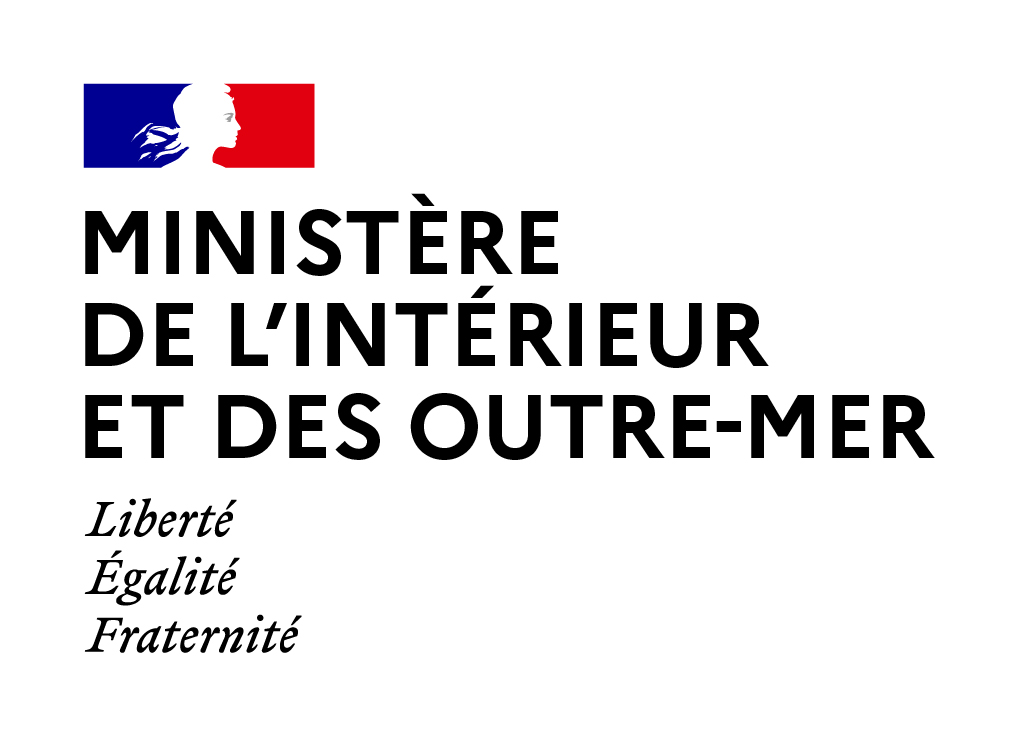
French Ministry of Interior
USER
The French Ministry of Interior (Ministère de l´Intérieur - MININT) is at the heart of the State's action throughout the country to serve the French people’s needs and meet their expectations in the area of safety and security, but also governance to promote a coherent model made up of institutions, electoral system, decentralisation and administrative and territorial organization. The Ministry of Interior ensures that local public law enforcement services are able to carry their missions of safeguarding both people and property and managing emergencies. Safeguarding the rights of our citizens means ensuring their security and protection against crime day after day. Within the Ministry of Interior, the Police and the Gendarmerie Nationale cover a wide range of missions in national offices and local criminal investigation units. Their staff fight against all forms of crime, ranging from minor acts of delinquency to organized crime, underground economy, trafficking of all kinds and, of course, terrorism. Among those, the Criminal police (Central Directorate of the Criminal Police - DCPJ) and the DCIS ( directorate for international security cooperation) which hosts the national empact coordination (NEC).

Public Security Police
USER
Public Security Police (PSP) is one of the major Police Forces integrating the Portuguese Internal Security System, with a core mission to “ensure the democratic legality, guarantee the internal security and the rights of the citizens, under the Constitution and the Law”.
One of the PSP’s exclusive national assignment is to “…license, control and survey the manufacturing, storage, sell, usage and transportation of weapons, ammunition and explosive and similar substances that do not belong to or are destined to the Military Forces and other Police Forces and Services, without compromising other legal entities”.
The main role is to share knowledge on focal points operation, firearms and the detection of suspected firearms trafficking on the darkweb, without details on IDs and investigations.

Foundation for Research and Technology
Research
The Human-Computer Interaction Laboratory (HCI Lab) of the Institute of Computer Science (ICS) of the Foundation for Research and Technology Hellas (FORTH), established in 1989, is an internationally recognised centre of excellence in user-centered design methodologies, user interface software technologies and tools, with applications across the spectrum of societal domains and intelligent technological environments. The mission of the laboratory is to actively contribute to an inclusive society, by carrying out pioneering research activities focused on creating innovative frameworks, methods, tools and techniques that support the design, development, evaluation and deployment of (user interfaces for) interactive applications and services that are accessible, natural, intuitive and friendly to all users in the Information Society, including elderly people and people with disabilities. Research and Development (R&D) activities of the HCI Lab include tools and interaction techniques for multimodal interaction, design and development of X-Reality systems, as well as personalization, decision-making algorithms and recommendation services in the fields of Ambient Intelligence and smart environments, Human Centered AI design, and visual analytics.
The HCI Lab will contribute significantly to the user requirements analysis and use case definition; the implementation of evidence-based visual analytics of cyber-physical traces; and the development of smart dashboards for the firearms trafficking trails visualization.

ITTI
SME
ITTI Sp. z o.o. is an IT company (SME) providing software solutions for the companies and institutions in Poland and in other countries. The company operates since 1996 and is located in Poznań with a branch in Bydgoszcz, Poland. Currently, ITTI has a team consisting of ca. 90 persons. Main activities of ITTI are development of innovative applications and dedicated software solutions which are adjusted to customer needs, e.g. systems supporting management of warehouses, systems supporting manufacturing processes, as well as systems supporting space situational awareness and space missions, and applied R&D mainly in the area of ICT and security. Since 2001 ITTI has been actively involved in the research and development projects performed in the programmes funded by European Commission (recently Horizon Europe and EDF, and formerly FP5, FP6, FP7, Horizon 2020, and EDIDP) – in total participation in over 60 EC projects, European Defence Agency (e.g. Joint Investment Programme on Force Protection, Joint Investment Programme on CBRN), European Space Agency, and national research programmes. In R&D activities the company cooperates closely with numerous universities and research institutes based in Poland as well as around Europe. Moreover, ITTI collaborates with such organisations as European Space Agency (ESA) and European Network Information Security Agency (ENISA). In years 2006, 2010, 2013, 2018 and recently in 2020, ITTI was awarded the prestigious “Cristal Brussels Prize” for being the most active and successful Polish SME participating in EC Framework Programmes.
In Ceasefire ITTI is mainly involved in activities related to system specification and development of front-end application suites, efficient information sharing tools among LEA, judicial and forensics authorities, and Dark Web and darknet marketplace analysis tools.

Thales Research & Technology Netherlands
IND
Thales Nederland is part of Thales group, a worldwide leader in the Aerospace, defense & security and digital identity and security industry. With over 2000 employees in the Netherlands, Thales is active in the Defense, Security, with radar-, communication- and command & control systems for Defense and communication-, security- and payment systems for trade and industry. Thales Netherlands research center, participating to the CEASEFIRE project, develops innovative concepts and solutions in the areas of software architecture, information security, human factors and artificial intelligence and machine learning internally and within international collaboration.

UBITECH – Ubiquitous Solutions
SME
UBITECH is a leading, highly innovative software house, systems integrator and technology provider, established to provide leading edge intelligent technical solutions and consulting services to businesses, organizations and government in order to allow the efficient and effective secure access and communication with various heterogeneous information resources and services, anytime and anywhere. UBITECH enables real-time valid information processing and decision-making, the realization of intelligent business environments, and B2B and B2C transactions by providing high added-value business –oriented and –based solutions. Within Ceasefire, UBITECH undertakes the leadership of WP3 which focuses on developing services, tools and user-centric interfaces regarding cyber patrolling and cross-border information exchange. It will capitalise over its Intelligence Suite, named MEDUSA, by modifying its APIs to serve the: (i) open-source intelligence collection and real-time systematic firearms incident data gathering; (ii) the data analysis on top of curated texts, graphs and images from dark web and darknet marketplaces; and (iii) interconnection and simultaneous investigation in multiagency international databases.

Harokopio University of Athens
Research
Harokopio University of Athens (HUA) is a public university dedicated to promoting research and learning in a small, well focused set of intellectual areas. The university, situated in the centre of Athens and close to the Unesco World Heritage Centre of the Acropolis, originates from an educational institution that was first established in 1929 and gained the status of University in 1990. It takes its name from the national benefactor Panagis Harokopos. The University’s excellent campus facilities house four academic departments. The design and overall development of the University has been based on international standards and on scientific research.
The department involved in CEASEFIRE is the Department of Informatics and Telematics. It was founded in 2006 with a mission to advance computer science, primarily in the fields of web/telematic applications, big data, machine learning and networking. The HUA's CEASEFIRE team has competences in computer vision, image processing and machine learning. Thus, from a technical perspective, it will primarily contribute to the project in tasks involving concept detection and firearm recognition/detection in image data (RGB and X-ray scans). Moreover, HUA leads the project's technical management and the dissemination efforts.
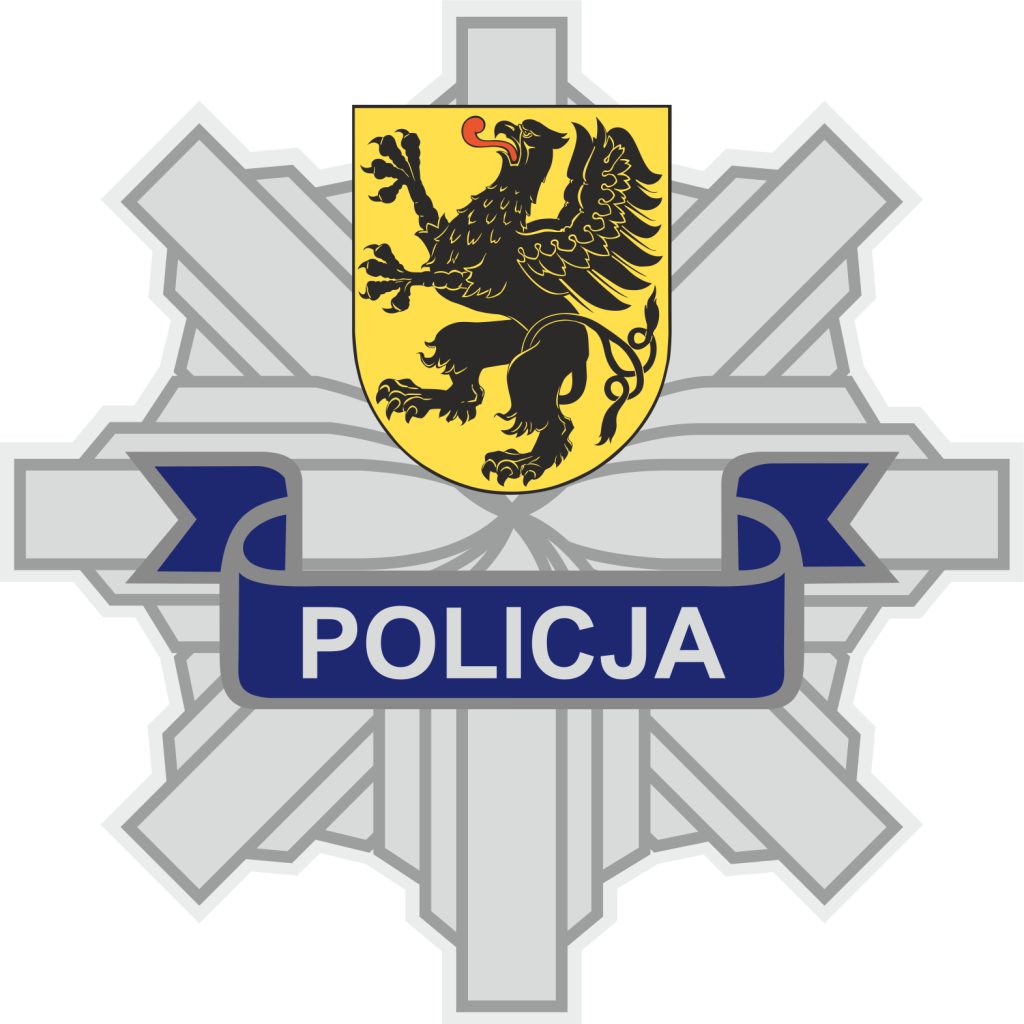
Provincial police headquarters in Gdansk
USER
Harokopio University of Athens (HUA) is a public university dedicated to promoting research and learning in a small, well focused set of intellectual areas. The university, situated in the centre of Athens and close to the Unesco World Heritage Centre of the Acropolis, originates from an educational institution that was first established in 1929 and gained the status of University in 1990. It takes its name from the national benefactor Panagis Harokopos. The University’s excellent campus facilities house four academic departments. The design and overall development of the University has been based on international standards and on scientific research.
The department involved in CEASEFIRE is the Department of Informatics and Telematics. It was founded in 2006 with a mission to advance computer science, primarily in the fields of web/telematic applications, big data, machine learning and networking. The HUA's CEASEFIRE team has competences in computer vision, image processing and machine learning. Thus, from a technical perspective, it will primarily contribute to the project in tasks involving concept detection and firearm recognition/detection in image data (RGB and X-ray scans). Moreover, HUA leads the project's technical management and the dissemination efforts.
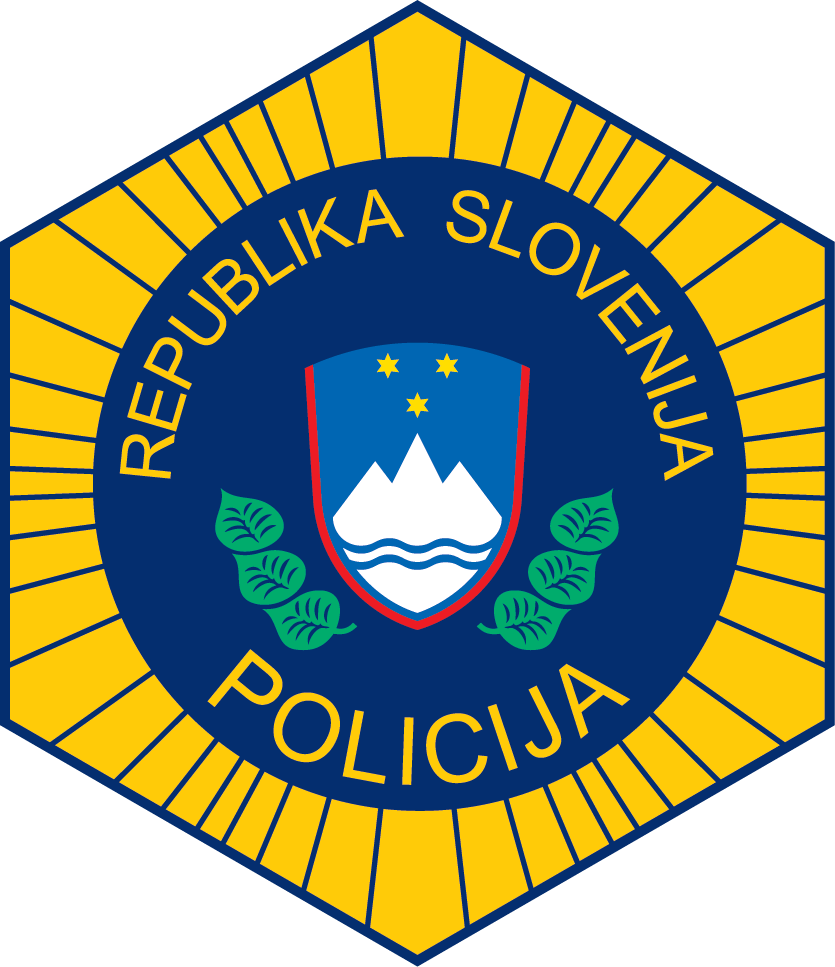
Slovenian police
USER
Through the Law on Police, which took effect on 18 July, 1998, the police
service became a body within the Ministry of Interior of the Republic of
Slovenia.
The police has truly gained its independence, however, the Ministry will
continue to define the developmental, organisational, personnel and other
basic orientations for its work, take care of its financial management and
investments as well as co-ordinate and harmonise the police information and
telecommunication systems with the systems of other state bodies. The
Ministry will also direct and monitor the performance of police tasks. The
goal of this reorganisation is a modern police organisation in line with
European standards, able to efficiently respond to the challenges of modern
life and ensure a high safety level. Therefore, this rationalisation of the
police organisation makes it even more flexible and citizen-friendly.
Pursuant to the law, the police performs its tasks at three levels: the
state, the regional and the local levels. Organisationally, it is composed
of General Police Directorate, Police Directorates and police stations. The
police headquarters are in Ljubljana.
The Police service is headed by the Director General of the Police, who
also conducts the work of the General Police Directorate. The Director
General of the Police and his or her deputy are discharged by the
government of the Republic of Slovenia on the proposal of the Minister.
Pursuant to the law, the police service performs the following tasks:
1. protecting life, personal safety and property of people;
2. preventing, discovering and inspecting penal acts and minor offences,
discovering and arresting those committing penal acts and minor offences,
other wanted persons and their extradition to the authorised bodies;
3. maintaining public order;
4. control and regulation of traffic on public roads and non-categorised
roads used for public traffic;
5. protecting the state border and performing border control;
6. performing tasks defined in the regulations about foreigners;
7. protecting certain persons, bodies, buildings and districts;
8. protecting certain working places and the secrecy of information of
state bodies, if not otherwise defined by law; and
9. performing tasks defined in the Law on Police and other laws and
secondary legislation documents.
Consortium
Who we are?

Institut National Polytechnique de Toulouse (INPT)
Research
Institut National Polytechnique de Toulouse (INPT) is a French federation of 6 Higher Schools (“Grandes Ecoles”) among which ENSAT, ENSEEIHT, ENSIACET are the historical Engineering Schools constituting INPT since 1971, and three Engineering Schools EI Purpan, ENIT, ENM. They provide education/continuous education and conduct research in the fields of Agronomy, Animal Health, Automatics, Biology, Chemical Engineering, Chemical Sciences, Climatology, Computer Sciences, Electronics, Electrical Engineering, Electronics, Environment, Fluid and Solid Mechanics, Food Safety, Industrial Engineering, Materials, Meteorology, Process Engineering, Sustainable development, Telecommunications, and Veterinary Sciences. About 7 000 students active in its 12 sites. INPT awards about 150 PhD per year. In this project, INPT will be represented by INPT-IRIT (“Institut de Recherche en Informatique de Toulouse” - Toulouse Institute of Computer Science Research). INPT-IRIT gathers more than 500 members. It is the largest computer science laboratory in France. INPT-IRIT researchers belong to one of the following institutions: CNRS (Centre National de la Recherche Scientifique), INPT (Institut National Polytechnique de Toulouse), UPS (Université Toulouse III-Paul Sabatier), UT1 (Université de Toulouse 1 Capitole) and UT2J (Université de Toulouse Jean Jaurès). This entails that all these institutions’ researchers can take part in this project, in addition to the ones from INPT. INPT-IRIT’s 24 research groups of the laboratory work in seven scientific themes covering most of computer science. Key personnel and groups have a long-standing experience in data sciences and data analytics, security, privacy, engineering, networks, and policy-making, with strong collaboration links with other academic and industrial partners. More precisely, in CEASEFIRE project, REVA team at ENSEEIHT and Minds team at UPS, are involved. These two teams have competences in image processing, computer vision and artificial intelligence, in particular, in deep learning. Consequently, the contributions will focus on object recognition and classification dedicated to firearms identification.

Università Cattolica del Sacro Cuore (UCSC)
Research
Founded in 1921, Università Cattolica del Sacro Cuore (UCSC) is the largest non-state university in Europe with 12 Faculties and about 41.000 students. Research activity draws on 1328 tenured researchers, 39 departments, 1 institute, 93 research centres, 4 university centres, 6 between observatories and laboratories, 8 Graduate Schools and 11 spin-offs and is aimed towards the study and understanding of crucial issues of life and society. Transcrime is the Joint Research Centre on Transnational Crime of the Università Cattolica del Sacro Cuore, the Alma Mater Studiorum Università di Bologna and the Università degli Studi di Perugia. The centre, founded in 1994 and directed by Professor Ernesto Ugo Savona, is based in Milan and has a staff of about 30 people. Its mission it to develop innovative research to reduce and prevent crime by employing an integrated approach (criminology, law, economics, statistics, sociology, forensic accounting, computational sciences). Its core areas are: analysis of transnational criminal phenomena (organized crime, economic crime, money laundering, illegal markets, urban crime, firearms trafficking); evaluation of crime prevention policies; analysis and identification of criminogenic opportunities in legislation (crime proofing analysis); development of risk assessment models and crime prevention strategies for public and private actors. Transcrime has participated in more than 150 research projects funded at both national and international level. It has a global partnership network with international organizations (e.g. United Nations, European Commission) national and local governments, central banks, law enforcement agencies, financial intelligence units, asset recovery offices, private companies.
Within Ceasefire Project, UCSC-Transcrime is leader of WP2 on Criminological analysis, user requirements and policy recommendations. It is leading the analysis of the modi operandi, risk profile creation and connections with other forms of organized crime. It will also develop a near real-time European-scale firearms-related incidents tracking tool, and it will summarize all significant outcomes reached during the whole duration of the project by providing best practices on firearms trafficking and lessons learned.

Police directorate of Serbia
USER
The Ministry of Internal Affairs performs state administration tasks related to: protection of life, personal and property security of citizens; prevention and detection of criminal acts and finding and catching perpetrators of criminal acts and bringing them to the competent authorities; maintenance of public order and peace; providing assistance in case of emergency; shelters; provision of assemblies and other gatherings of citizens; provision of certain persons and facilities, including foreign diplomatic and consular missions on the territory of the Republic of Serbia; safety, regulation and control of traffic on roads; proposing acts related to the exercise of founding rights over the public agency responsible for traffic safety; security of the state border and control of border crossing and movement and stay in the border zone; stay of foreigners; traffic and transportation of weapons, ammunition, explosives and certain other dangerous substances; examination of hand-held firearms, devices and ammunition; creation of conditions for access and implementation of projects from the scope of that ministry that are financed from the funds of the pre-accession funds of the European Union, donations and other forms of development assistance; fire protection; citizenship; identification number; electronic management of personal data; residence and residence of citizens; identity cards; travel documents; international aid and other forms of international cooperation in the field of internal affairs, including readmission; illegal migration; asylum; personnel training; administrative settlement in the second instance procedure based on regulations on refugees, as well as other tasks specified by law.
According to Ceasefire's main objective, MUP RS will participate with expertise and practice experience and take an active part in the design of the development of a highly innovative, holistic, multi-disciplinary, high-tech, and versatile approach, should contribute to increasing/broadening the operational capabilities to detect, analyze and track cross-border illicit firearms trafficking-related activities.

French Ministry of Interior
USER
The French Ministry of Interior (Ministère de l´Intérieur - MININT) is at the heart of the State's action throughout the country to serve the French people’s needs and meet their expectations in the area of safety and security, but also governance to promote a coherent model made up of institutions, electoral system, decentralisation and administrative and territorial organization. The Ministry of Interior ensures that local public law enforcement services are able to carry their missions of safeguarding both people and property and managing emergencies. Safeguarding the rights of our citizens means ensuring their security and protection against crime day after day. Within the Ministry of Interior, the Police and the Gendarmerie Nationale cover a wide range of missions in national offices and local criminal investigation units. Their staff fight against all forms of crime, ranging from minor acts of delinquency to organized crime, underground economy, trafficking of all kinds and, of course, terrorism. Among those, the Criminal police (Central Directorate of the Criminal Police - DCPJ) and the DCIS ( directorate for international security cooperation) which hosts the national empact coordination (NEC).

Thales Research & Technology Netherlands
IND
Thales Nederland is part of Thales group, a worldwide leader in the Aerospace, defense & security and digital identity and security industry. With over 2000 employees in the Netherlands, Thales is active in the Defense, Security, with radar-, communication- and command & control systems for Defense and communication-, security- and payment systems for trade and industry. Thales Netherlands research center, participating to the CEASEFIRE project, develops innovative concepts and solutions in the areas of software architecture, information security, human factors and artificial intelligence and machine learning internally and within international collaboration.

Slovenian police
USER
Through the Law on Police, which took effect on 18 July, 1998, the police
service became a body within the Ministry of Interior of the Republic of
Slovenia.
The police has truly gained its independence, however, the Ministry will
continue to define the developmental, organisational, personnel and other
basic orientations for its work, take care of its financial management and
investments as well as co-ordinate and harmonise the police information and
telecommunication systems with the systems of other state bodies. The
Ministry will also direct and monitor the performance of police tasks. The
goal of this reorganisation is a modern police organisation in line with
European standards, able to efficiently respond to the challenges of modern
life and ensure a high safety level. Therefore, this rationalisation of the
police organisation makes it even more flexible and citizen-friendly.
Pursuant to the law, the police performs its tasks at three levels: the
state, the regional and the local levels. Organisationally, it is composed
of General Police Directorate, Police Directorates and police stations. The
police headquarters are in Ljubljana.
The Police service is headed by the Director General of the Police, who
also conducts the work of the General Police Directorate. The Director
General of the Police and his or her deputy are discharged by the
government of the Republic of Slovenia on the proposal of the Minister.
Pursuant to the law, the police service performs the following tasks:
1. protecting life, personal safety and property of people;
2. preventing, discovering and inspecting penal acts and minor offences,
discovering and arresting those committing penal acts and minor offences,
other wanted persons and their extradition to the authorised bodies;
3. maintaining public order;
4. control and regulation of traffic on public roads and non-categorised
roads used for public traffic;
5. protecting the state border and performing border control;
6. performing tasks defined in the regulations about foreigners;
7. protecting certain persons, bodies, buildings and districts;
8. protecting certain working places and the secrecy of information of
state bodies, if not otherwise defined by law; and
9. performing tasks defined in the Law on Police and other laws and
secondary legislation documents.

IANUS Technologies LTD
SME
IANUS Technologies LTD is an SME based in Cyprus, founded in 2019. The company conducts research in a number of areas with more active participation in the security domain. Ianus develops innovative technology solutions and concepts based on research outcomes and actively participates in the preparation of research proposals and the implementation and management of all aspects of European-funded research projects.
Ianus is leading the activities that address organizational, legal, and operational aspects in fully functional national firearms focal points and is responsible for the validation and demonstration of the project services, by leading the definition of the scenarios for the pilot studies, the implementation of the training curricula, the planning of the pilot execution, and the demonstration and validation in real-world environments.

Certh
Research
The Centre for Research and Technology-Hellas (CERTH) is the only research centre in Northern Greece and one of the largest in the country being founded in 2000. It is a legal entity governed by private law with non-profit status, supervised by the General Secretariat for Research and Technology (GSRT) of the Greek Ministry of Education and Religious Affairs. CERTH has important scientific and technological achievements in many areas including: Energy, Environment, Industry, Mechatronics, Information & Communication, Transportation & Sustainable Mobility, Health, Agro-biotechnology, Smart farming, Safety & Security, as well as several cross-disciplinary scientific areas.
The Information Technologies Institute (ITI) was founded in 1998 as a non-profit organisation under the auspices of the General Secretariat for Research and Technology of the Greek Ministry of Development, with its head office located in Thessaloniki, Greece. Since 10/03/2000 it is a founding member of the Centre for Research and Technology Hellas (CERTH) also supervised by the General Secretariat for Research and Technology (GSRT).
CERTH/ITI is one of the leading Institutions of Greece in the fields of Informatics, Telematics and Telecommunications, with long experience in numerous European and national R&D projects. It is active in a large number of research domains such as Energy Efficiency in Buildings, Security and Surveillance, Image and Signal Processing, Computer & Cognitive Vision, Human Computer Interaction, Virtual and Augmented Reality, Multimedia, Database and Information Systems and Social Media Analysis.
CERTH/ITI has participated in more than 175 research projects funded by the European Commission (FP5-FP6-FP7 & H2020) and more than 100 research projects funded by Greek National Research Programmes and Consulting Subcontracts with the Private Sector (Industry). The last three years, the Information Technologies Institute has attracted an income of more than 25.5 M€ from National and European competitive R&D projects. For the last 10 years, the publication record of ITI includes more than 270 scientific publications in international journals, more than 600 publications in conferences and 100 books and book chapters. These works have been cited in more than 6.500 times.
Within CeaseFire, CERTH/ITI besides the role of the project coordinator, is also the leader of WP5, dealing with online trafficking activities analysis, utilizing Natural Language Processing (NLP) technologies, as well as analysis of blockchain and cryptocurrencies information.

Spanish national police
USER
The Spanish National Police (Policía Nacional-PN) is a police force (LEA) born in 1824, since their origin have been growing as police force up to the present day. Now is a more than 70.000 police officers Law Enforcement Agency with competences in all Spanish territory. One of the PN strategic lines in home security is to achieve a police force more dynamic, more efficient and more intelligent using new technologies and new working methods to be more effective.
According to the Organic Law 2/86, depending on the Spanish Minister of Interior, the PN statutory tasks, among others, are: “Capture, receive and analyze the data of interest in order to ensure the public security, and study, plan and execute all the techniques and methods to prevent the crime ”. In order to carry out this mandate, the Spanish National Police is in charge of: - Aid and protect persons and goods - Maintain and restore the public order and citizen security - Investigate crimes, arresting the culprits and bringing perpetrators to justice - Collect and analyze interest data in order to maintain the public security - Issue and control the national identity cards and passports - Enforce the legislation on foreigners - Collaborate and aid to other countries’ LEA - Control over private security.

Public Security Police
USER
Public Security Police (PSP) is one of the major Police Forces integrating the Portuguese Internal Security System, with a core mission to “ensure the democratic legality, guarantee the internal security and the rights of the citizens, under the Constitution and the Law”.
One of the PSP’s exclusive national assignment is to “…license, control and survey the manufacturing, storage, sell, usage and transportation of weapons, ammunition and explosive and similar substances that do not belong to or are destined to the Military Forces and other Police Forces and Services, without compromising other legal entities”.
The main role is to share knowledge on focal points operation, firearms and the detection of suspected firearms trafficking on the darkweb, without details on IDs and investigations.

UBITECH – Ubiquitous Solutions
SME
UBITECH is a leading, highly innovative software house, systems integrator and technology provider, established to provide leading edge intelligent technical solutions and consulting services to businesses, organizations and government in order to allow the efficient and effective secure access and communication with various heterogeneous information resources and services, anytime and anywhere. UBITECH enables real-time valid information processing and decision-making, the realization of intelligent business environments, and B2B and B2C transactions by providing high added-value business –oriented and –based solutions. Within Ceasefire, UBITECH undertakes the leadership of WP3 which focuses on developing services, tools and user-centric interfaces regarding cyber patrolling and cross-border information exchange. It will capitalise over its Intelligence Suite, named MEDUSA, by modifying its APIs to serve the: (i) open-source intelligence collection and real-time systematic firearms incident data gathering; (ii) the data analysis on top of curated texts, graphs and images from dark web and darknet marketplaces; and (iii) interconnection and simultaneous investigation in multiagency international databases.

Polish customs
USER
The Tax Administration Chamber in Gdask is part of the National Tax Administration in Poland (KAS). The National Revenue Administration (KAS) takes care of the realization of revenues from taxes, customs duties, fees and non-tax budget receivables. It protects the interests of the State Treasury and the customs territory of the European Union. Provides service and support for taxpayers in the proper performance of tax and customs obligations.

Ministry of interior of North Macedonia
USER
The Ministry of Interior performs works and duties related to:
• Exercising the system of national and public security;
• Reporting of residence and temporary residence;
• Citizenship and passports for border crossing;
• Movement and stay in border area;
• Control when crossing national border, as well as certain works regarding determination and resolution of border incidents and other violations of border;
• Stay and movement of foreigners;
• Production, trade, storage and protection of flammable liquids, gases, explosives and other hazardous materials and their transport;
• Providing assistance in natural disasters and epidemics;
• Procurement, owning, carrying and control of marking of weapons and ammunition;
• Performing surveillance under their authority; and
• Performing other duties as stipulated by Law.

NETCOMPANY
IND
Netcompany-Intrasoft is a leading European IT Solutions and Services Group with strong international presence and expertise, offering innovative and added-value solutions of the highest quality to a wide range of international and national public and private organizations. As of November 2021, Netcompany-Intrasoft became a member of the Netcompany Group, a Denmark located IT company founded in 2000. Netcompany is the fastest growing and most successful IT services company in the Nordics, owning vast technology experience and deep industry-specific knowledge, creating innovative solutions tailored to meet business goals.
In the context of the CEASEFIRE project, Netcompany-Intrasoft is responsible for the system architecture and integration.

Foundation for Research and Technology
Research
The Human-Computer Interaction Laboratory (HCI Lab) of the Institute of Computer Science (ICS) of the Foundation for Research and Technology Hellas (FORTH), established in 1989, is an internationally recognised centre of excellence in user-centered design methodologies, user interface software technologies and tools, with applications across the spectrum of societal domains and intelligent technological environments. The mission of the laboratory is to actively contribute to an inclusive society, by carrying out pioneering research activities focused on creating innovative frameworks, methods, tools and techniques that support the design, development, evaluation and deployment of (user interfaces for) interactive applications and services that are accessible, natural, intuitive and friendly to all users in the Information Society, including elderly people and people with disabilities. Research and Development (R&D) activities of the HCI Lab include tools and interaction techniques for multimodal interaction, design and development of X-Reality systems, as well as personalization, decision-making algorithms and recommendation services in the fields of Ambient Intelligence and smart environments, Human Centered AI design, and visual analytics.
The HCI Lab will contribute significantly to the user requirements analysis and use case definition; the implementation of evidence-based visual analytics of cyber-physical traces; and the development of smart dashboards for the firearms trafficking trails visualization.

Harokopio University of Athens
Research
Harokopio University of Athens (HUA) is a public university dedicated to promoting research and learning in a small, well focused set of intellectual areas. The university, situated in the centre of Athens and close to the Unesco World Heritage Centre of the Acropolis, originates from an educational institution that was first established in 1929 and gained the status of University in 1990. It takes its name from the national benefactor Panagis Harokopos. The University’s excellent campus facilities house four academic departments. The design and overall development of the University has been based on international standards and on scientific research.
The department involved in CEASEFIRE is the Department of Informatics and Telematics. It was founded in 2006 with a mission to advance computer science, primarily in the fields of web/telematic applications, big data, machine learning and networking. The HUA's CEASEFIRE team has competences in computer vision, image processing and machine learning. Thus, from a technical perspective, it will primarily contribute to the project in tasks involving concept detection and firearm recognition/detection in image data (RGB and X-ray scans). Moreover, HUA leads the project's technical management and the dissemination efforts.

Trilateral research
SME
Trilateral Research is a UK and IE-based enterprise, founded in 2004. We provide ethical AI software solutions for tackling complex social problems in the public sector. Our rigorous research is the foundation of our work. Our team members are at the forefront of all things ‘data’ in our complex world: from collection, processing, analysis and modelling to the consideration of emerging policy and regulations in AI innovation. This enables us to:
• Advance our software products by providing ethical AI that is driven by responsible innovation and deep knowledge of relevant social problems
• Ensure our consulting services are at the cutting edge of emerging regulatory and ethical requirements and leverage the latest domain-specific insights
• Continue to innovate, by driving the development of new technologies and methods for ethical AI
Our solutions make it possible for public-sector professionals to make the best use of their data. We focus our efforts on areas where the application of our software and services can make a difference in supporting decision making to enhance societal wellbeing.
Given Trilateral Research’s expertise in ethical AI software solutions, Trilateral Research will contribute to all legal, ethical, personal data, fundamental rights and privacy aspects of CEASEFIRE. Trilateral Research will also lead project activities relating to the harmonisation of framework procedures in trans-border, cross-jurisdictional investigations, cooperation, lawful evidence collection, and forensic analysis. In achieving Trilateral Research’s mission of enhancing societal wellbeing, Trilateral Research will also lead a comprehensive societal impact assessment study of the project’s activities, developed technologies and produced outcomes.

Moldovan general police inspectorate
USER
The General Police Inspectorate (GPI) is the administrative authority subordinated to the Ministry of Internal Affairs, which ensures, in accordance with the law, the implementation of state policies in the field of maintaining, ensuring and restoring public order and security, protecting the rights and legitimate interests of the individuals and community, investigation and discovery of crimes and contraventions, administration of justice, provides assistance to the population and local public, administration authorities.
GPI represents the central unit of administration and control of the Police, with the status of legal person under public law, having competence throughout the Republic of Moldova.
The GPI has the mission of coordinating and organizing activities aimed for the implementation of measures destinated to maintain public order and security, in order to increase the safety of citizens, streamline the process of preventing and combating crime, identifying and countering attacks on life, liberty, health and the integrity of persons, to private and public property, and to other legitimate interests of the community.
GPI ensures the accomplishment of the functions established by his Regulation in the following fields of activity:
1) maintaining, ensuring and restoring public order and security, protecting the rights and legitimate interests of the person and the community;
2) prevention of crimes and contraventions;
3) investigation of crimes and contraventions, as well as criminal prosecution;
4) ensuring the administration of justice;
5) assistance of the population and local public administration authorities;
6) organizing the activity of the Police.
Partnership:
In order to ensure the fulfillment of the missions established for GPI, in cooperation with international partners and institutions as EUROPOL, INTERPOL and with a big number of law enforcement authorities from other states such as Romania, Poland, Greece, Belgium, Germany, etc.
At the national level, GPI cooperate with structures such as The Security and Intelligence Service, General Inspectorate of Border Police, General Inspectorate for Emergency Situations, State Protection and Guard Service of Moldova, General Prosecutor's Office of the Republic of Moldova, the General Inspectorate of Carabinieri, National Institute of Justice, Central Probation Office, State Ecological Inspectorate, National Environmental Center, Main State Tax Inspectorate of Moldova, the Department of Penitentiary Institutions of the Ministry of Justice, etc.
There are a number of collaboration agreements signed between GPI, civil society and other similar institutions.
(https://politia.md/ro/advanced-page-type/parteneriate-cu-societatea-civila)
Also, GPI work in close cooperation with numerous universities and research institutes, NGOs from the Republic of Moldova and from other states.
GPI' s role in the project- final beneficiary.
GPI is a Police authority, represented with National Investigative Inspectorate of GPI, National Inspectorate of Public Security of GPI - The Forensic and Judicial Expertise Centre of GPI, Project management department of GPI and Information analysis department of GPI.
In order to tackle the issue of cross- border illicit trafficking in firearms, GPI foresees the coordinated action and collaboration of its listed departments/units. The results to be accomplished by the project are foreseen to significantly strengthen the operational capacity and capability of GPI to address challenges in the field of firearms trafficking. Use-case involvement: GPI will participate in use case #3 ‘Firearms purchase οn dark Web marketplaces’ and use case #4 ‘Mail order and courier service firearms trafficking detection using scanning technologies’

Exus
SME
EXUS is an International Software Company, specialising in the Debt Collections & Recovery Technology. The company participates in the HE Ceasefire project through EXUS AI Labs, its R&D department that has an intense research activity and experience in EU-funded projects, having developed an expertise in a variety of AI solutions, including Explainable AI, Early Warning Systems, Data Fusion, Decision Support, Risk Prediction and Scenario Building.
In the context of the Ceasefire project, EXUS leads work package 6, which is responsible for Information fusion and cyber-physical traces correlation estimation. Within the work package, EXUS is in charge of tasks related to the detection of key events related to firearms trafficking and the organised criminal network reconstruction and analysis. Finally, EXUS is also leading the Market analysis and business model definition activities of the project.

ITTI
SME
ITTI Sp. z o.o. is an IT company (SME) providing software solutions for the companies and institutions in Poland and in other countries. The company operates since 1996 and is located in Poznań with a branch in Bydgoszcz, Poland. Currently, ITTI has a team consisting of ca. 90 persons. Main activities of ITTI are development of innovative applications and dedicated software solutions which are adjusted to customer needs, e.g. systems supporting management of warehouses, systems supporting manufacturing processes, as well as systems supporting space situational awareness and space missions, and applied R&D mainly in the area of ICT and security. Since 2001 ITTI has been actively involved in the research and development projects performed in the programmes funded by European Commission (recently Horizon Europe and EDF, and formerly FP5, FP6, FP7, Horizon 2020, and EDIDP) – in total participation in over 60 EC projects, European Defence Agency (e.g. Joint Investment Programme on Force Protection, Joint Investment Programme on CBRN), European Space Agency, and national research programmes. In R&D activities the company cooperates closely with numerous universities and research institutes based in Poland as well as around Europe. Moreover, ITTI collaborates with such organisations as European Space Agency (ESA) and European Network Information Security Agency (ENISA). In years 2006, 2010, 2013, 2018 and recently in 2020, ITTI was awarded the prestigious “Cristal Brussels Prize” for being the most active and successful Polish SME participating in EC Framework Programmes.
In Ceasefire ITTI is mainly involved in activities related to system specification and development of front-end application suites, efficient information sharing tools among LEA, judicial and forensics authorities, and Dark Web and darknet marketplace analysis tools.

Provincial police headquarters in Gdansk
USER
Harokopio University of Athens (HUA) is a public university dedicated to promoting research and learning in a small, well focused set of intellectual areas. The university, situated in the centre of Athens and close to the Unesco World Heritage Centre of the Acropolis, originates from an educational institution that was first established in 1929 and gained the status of University in 1990. It takes its name from the national benefactor Panagis Harokopos. The University’s excellent campus facilities house four academic departments. The design and overall development of the University has been based on international standards and on scientific research.
The department involved in CEASEFIRE is the Department of Informatics and Telematics. It was founded in 2006 with a mission to advance computer science, primarily in the fields of web/telematic applications, big data, machine learning and networking. The HUA's CEASEFIRE team has competences in computer vision, image processing and machine learning. Thus, from a technical perspective, it will primarily contribute to the project in tasks involving concept detection and firearm recognition/detection in image data (RGB and X-ray scans). Moreover, HUA leads the project's technical management and the dissemination efforts.
